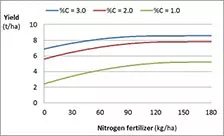Theme 2: Understanding land-use decisions
Economic valuation and governance of agricultural landscapes
Within theme 2, we want to understand which factors influence farmers’ land-use decisions, and what consequences these decisions have for the production and value of ecosystem services under different governance regimes. Farmers’ knowledge and practices, networks, collaborations and governance frameworks will be explored using socio-ecological questionnaires and structured open-ended interviews with farmers as well as ethnographic mapping and social network analyses. Using this insight in spatially adopted land-use models, will eventually allow us to optimize multiple ecosystem services under different land-use scenarios. In close collaboration with stakeholders, we will validate the modeling results in order to promote the function of multiple ecosystem services.
The potential benefits of promoting biodiversity and the delivery of ecosystem services may be multifarious: Farmers may benefit from increased yields and reduced reliance on external inputs; monetary benefits to society may include avoided damage costs due to nutrient retention and carbon sequestration as well as saving replacement costs for, for example loss of pollination and biological control; last but not least, society may also gain added cultural or recreational values in landscapes where these are linked to the conserved ecological values.
